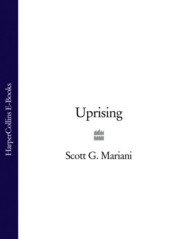По всем вопросам обращайтесь на: info@litportal.ru
(©) 2003-2024.
✖
The Company of Strangers
Автор
Год написания книги
2018
Настройки чтения
Размер шрифта
Высота строк
Поля
He went back to his mother who still sat in the same position, the light poorer but her scalp visible under her grey hair, which he’d never seen before.
‘So,’ she said before he had sat down, ‘he told you about the girl.’
‘He told me he wants his ashes cast on her grave.’ His mother nodded, and looked over her shoulder as if she’d heard something outside. The light caught her face, no sadness, only acceptance.
‘She was somebody he knew, an army officer’s daughter. He fell in love with her and she died. I think he knew her for all of one week.’
‘One week?’ said Voss. ‘He told you this?’ ‘He told me about the girl, he was a totally honourable man, your father, incapable even of omission. His sister filled in the details.’ ‘But you’re his wife and…I can’t do this.’ ‘You can, Karl. You will. If it’s his wish, it’s mine too. Just think of it as your father being in love with the idea, or rather an ideal, that was not complicated or tarnished by the grind of everyday life. That is the purest form of love you can find. Perfection,’ she said, shrugging. ‘I can think of no better thing after what your father went through, than for him to rest with his ideal. To him it was a vision of peace that he failed to attain in life.’
The funeral took place three days later. There were few people, most of his father’s friends were at one front or another. Frau Voss invited the few back to her house for some tea. Major Giesler was one who accepted. At the house Karl asked for a private word with him and they went into his father’s study.
Voss began to tell him the contents of his father’s letter. Giesler stopped him, went to the phone, followed the line to the wall and removed the pin from the socket. He sat back down in the leather chair by the window. Voss told him of his willingness to talk. Giesler said nothing. He had his hands clasped and was chewing on a knuckle, one of the few hairless regions of his body. He was very dark and his thick black eyebrows joined over his nose. He had a large, full-lipped, sensual mouth and his cheeks, razored that morning, already needed to be reshaved.
‘I would understand,’ said Voss, ‘if you needed to make some inquiries about me before we talk.’
‘We’ve already made our inquiries,’ said Giesler.
Voss thought for a moment.
‘In Rastenburg?’
‘We know, for instance, how you felt about the…the death of the Reichsminister Todt,’ said Giesler, ‘and your…disappointment with the way in which good soldiers died needlessly at Stalingrad and, of course, you have an impeccable pedigree.’
Voss frowned, replayed some reels in his mind.
‘Weber?’
Giesler opened his hands, reclasped them.
‘Weber disappeared,’ said Voss. ‘What happened to him?’
‘We didn’t know he was a homosexual. There are some things that even the deepest of inquiries will not unearth.’
‘But where is he?’
‘He is in very serious trouble, which he brought on himself,’ said Giesler. ‘He behaved recklessly in a climate where scapegoats were eagerly sought.’
‘He must have been under pressure…’
‘Drinking is one thing.’
‘How do you know I’m not homosexual?’
Giesler looked at him long and hard, that sensual mouth becoming unnerving.
‘Weber,’ he said after some time, as if perhaps that source hadn’t been as reliable as he’d have liked.
‘Well, he should know, although I’m not sure how. Women were not abundant in Rastenburg and those that were available…’ he drifted off, disheartened by the turn the conversation had taken; this dip into the ignoble was not what he’d had in mind. This was supposed to be a courageous act and here they were parting the dirt.
Giesler had his answer. He didn’t need to pursue this discussion further. He gave Voss an address of a villa in Gatow with a meeting time for the next day and stood. They shook hands and Giesler hung on, which at first Voss thought was another sexuality test but, no, it was a sincerity hold, a brotherhood clasp.
‘Weber won’t talk,’ he said. ‘It’s possible he will survive, although he will never get back into Rastenburg. But it is something for you to think about before you come to Gatow tomorrow. It’s not easy to be an enemy of the State – not, I hasten to add, an enemy of the nation, but this State. It is dangerous and lonely work. You will be lying to your colleagues every day for perhaps years. You will have no friends because friends are dangerous. Your work will require a mental fortitude, not intelligence necessarily, but strength and it is something you may feel you do not have. If you do not come to Gatow tomorrow nobody will think any the less of you. We will go our separate ways, praying for Germany.’
Voss slept badly that night in a torment over his part in Weber’s arrest. At four in the morning, the death and debt hour, he found his mind crowded with thoughts of his father and mother, Julius and Weber, and it was then that he had a sudden perception of the power of words, of the business of communication. Once words are said nothing is the same. His father didn’t have to tell his mother about Rosemarie Hausser, but he did. It must have established an unrecoverable distance, instilled a lifelong sense of disappointment in his mother with a short line, some words and a name. In his own crucial conversation with Weiss, which he had not been prepared for, he realized that it was not physics that had alerted him but the words ‘physical’ and ‘women’. It had been a confirmation. It made him think that in talking to people you never know what they know, you never know what they think, and innocuous words can take on huge importance. He stopped writhing in his bed – he hadn’t served up Weber, he’d just handed Weiss the spoons.
He went to Gatow the following afternoon, nervous as if it was a visit to the doctor, who might find a mild symptom the precursor of something deadly. He was met by a housekeeper who took him to a book-lined room at the back of the house. She gave him real coffee and a homemade biscuit. Giesler came in with a large man of military rectitude but who was dressed in a blue double-breasted suit. He was bald with a brown, clipped fringe of hair at the back and sides. He wore gold-rimmed spectacles. Voss was introduced but the man’s name was never given.
They talked about his work at Heidelberg University and recent developments in physics. The man was knowledgeable, not expert, but he understood. The words ‘fissionable material’, ‘critical mass’, ‘chain reaction’ and ‘atomic pile’ were not mysterious concepts.
The conversation switched from physics to the Russians. Voss expressed his fear of them:
‘They have no reason to be forgiving after what we have done to them. We have broken a pact, invaded their country, and brutalized the population. After the defeat we have suffered at Stalingrad it is possible that they will have the confidence to drive us back. If they succeed I believe they will not stop until they reach Berlin. They will punish us.’
‘So you would see it as advantageous that we negotiate a separate peace with the Allies?’
‘Imperative, unless we want to see Germany or a part of Germany in the Soviet Union. Perhaps we can even persuade the Allies that we are not the real enemy in this war and that…’
The man held up his hand.
‘One step at a time,’ said the man firmly. ‘First we will work on your transfer away from Rastenburg. You will need some training, too. The Abwehr headquarters along with the Army High Command has moved south to Zossen and we now live for our sins in a concrete citadel out there called Maibach II. You will spend some months with us. The work you will be doing is very different – gathering information, running agents in the field – it’s not the military intelligence that you know. After that we will send you to Paris and from there we will try to position you in Lisbon.’
‘Lisbon?’
‘It’s the only place in Europe now where we can talk easily with the Allies.’
Voss lived with his mother while he completed his training in Zossen. She looked after him as if he was at school again and it was a comfort for both of them. It was a wrench when he was transferred to France in June.
He spent eight months in the Abwehr’s French headquarters at 82 Avenue Foch in Paris and, furnished with his new perception of the power of words, saw the horrific consequences for others who hadn’t yet come to the same understanding.
French and British men and women were arrested, sent to concentration camps, tortured and executed for what was, more than half the time, a totally imaginary situation. Both the Abwehr and the SD/Gestapo, who operated from next door, were playing what became known as radio games. Voss never worked out whether it was merely Allied stupidity or German infiltration into their intelligence operations at a very high level which enabled these deadly games to be played. Once an Allied radio operator was captured and his codename and signal extracted an Abwehr operator would continue broadcasting to London. Later when there were two security signals required, the Allies would reply simply reminding the operator that he’d forgotten his second signal but to continue. The baffled and angry radio operators soon supplied the second security signal to the Germans. Following these fictitious Abwehr broadcasts more agents and supplies would be flown into some misty French field and a reception from the Occupying force. These new agents’ codenames were then used to build fictitious networks operated by the Abwehr and Gestapo, dispersing vast quantities of misinformation to the Allies. Meetings convened by operational Allied agents were frequently attended by Abwehr men using captured agents’ codenames.
Occasionally Voss would stage arrests in the street to maintain verisimilitude.
Most intelligence activity was mirage and artifice. Very little was real. Intelligence, he discovered, was built on the foundations of the imagination and, in the case of the radio games, a blind belief in the veracity of technology. It was a terrifying concept, as terrifying as if the basic principles of physics or maths were completely wrong and whole academic disciplines had been built on falsehood and thus all discoveries were intrinsically wrong, all achievements bogus.
Voss also learned never to fall in love in this world. Lovers betrayed each other easily. Torture, the Gestapo’s preferred method, was unnecessary. Just the insinuation of a lover’s infidelity to a prisoner was as powerful as any of their appalling applications. The emotional betrayal played such devious and teasing tricks on the mind. Jealousy was inevitable in the loneliness of a cell. The darkness, with only the infected mind for company, created powerful images that at first disheartened and later so enraged and ravaged the prisoners that they would grasp at a new strength and in their vindictiveness bring down not just the lover, but all the connections as well.
This did not mean that Voss was celibate in his time in Paris – that was impossible and there was something to prove to Giesler too – but he kept his distance. A French-woman called Françoise Larache taught him a different and darker lesson about love in the intelligence game.
They met when using the same bar. He would take a coffee in the mornings and find her watching him. He would stop off in the evening for a glass of something and she was often there at a table, smoking her strong cigarettes. They exchanged words and began to share a table, where he would watch her red lips connect with the thick tip of her cigarette, and her fingers pick off the flakes of tobacco from her pointed tongue. One night they went for a meal and back to his apartment where they made love. She was energetic and inventive, doing things on their first night which surprised him.
They became regulars of each other’s company in bed, and as Françoise was quick to demand, out of bed as well. She pushed him to do things which were at first exciting and then became increasingly more reckless. She liked to make love on the balcony with people passing in the street below. She would lean back over the rail, her arms around his neck, and then suddenly let go so that he nearly lost her over the edge. They would have sex in doorways and on landings while people ate their dinner and table-talked. She would even cry out and the talk would stop inside. Voss would have to close his hand over her mouth. The greater the chance of being discovered, the more excited Françoise became.
Then one day in the autumn with the dried leaves rustling over the balcony, her mischievous eye, the one that glinted when she looked up at him from under her eyebrow, became darker, as if he was seeing deeper in and what was there was more sinister, taboo.
It started with a request that he spank her for being a naughty girl. Voss felt stupid with a grown woman over his knees and she had to encourage him to be serious and to be more severe. It didn’t seem to be fun any more. He still lusted after her, but for Françoise the sex was being driven by something else. He became reluctant to play her games, she angry. They had furious arguments, monumental rows with flying objects, which would end in brutal love-making where each thrust into her seemed to be a payment back. He found himself reeling out of his apartment into the docility of occupied Paris, unable to believe what he’d participated in the night before, only knowing that it was powerful, intense and degrading.
Françoise’s goading became worse. There was no fun now. She said terrible, unforgivable things and, although he could see what she was doing, he was a part of it too. There was no stepping back. She was forcing him to slap her, and not just a hysteria-breaking slap, a punishing slap. She wanted to be hit hard. She drove her face at him. The words came out slicing the air, lacerating, stabbing, each one honed to cut deep to the bone. They grappled and wrestled each other to the floor. She sunk her nails into his neck. He wrenched himself free and found his fist cocked back to his shoulder. He swayed, dizzy at what this had come to. Her face was suddenly soft, her eyes dreamy. This was what she wanted. He stood up, straightened his clothes. All lust gone. Her face hardened. He gave her his hand, she took it and he pulled her to her feet. She spat in his face. He pulled her to the door, grabbing her coat and handbag on the way, and threw her out of the apartment.











